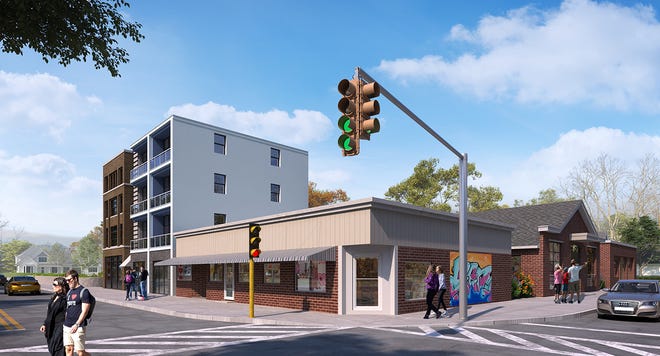Holly Camero Wicked Local
Published 10:36am ET Nov. 4, 2021 Updated 8:12am Nov. 5, 2021
Despite an impassioned plea from the owner, the Maynard Select Board was not ready to move forward with a Host Community Agreement for UPA Inc.
UPA Inc. wants to open a marijuana delivery service at 2 Powder Mill Road, at the site of the former Urban Glass Company.
Owner Uma Dhanabalan is an economic empowerment applicant and said she wants to lease the building and start her business. She asked the board to give the go ahead for the town administrator to negotiate the HCA.
“I’m a doctor, not a business person. I request all of you to please open your hearts. I want some answers so I can move forward. This is just the start. We’re trying to do something good for the community as part of the master plan,” Dhanabalan said at the Nov. 2 board meeting.
The Nov. 2 meeting marked the third time Dhanabalan has come before the board.
A sticking point for the board is the town’s Master Plan indicates a preference for retail stores or restaurants at that location, which is considered the gateway to the downtown district. A warehouse-type business does not fit that plan. The Economic Development Committee has already put their stamp of disapproval on the plan. The EDC is an advisory committee, so the vote is not binding.
Vacant buildings could get a facelift
Adam Stack is in negotiations to purchase the property at 2 Powder Mill Road. He has already purchased the adjacent property at 2-8 Waltham St. At the Sept. 21 Select Board meeting, he presented plans to revitalize the mostly vacant property, that would include some rental units and space for retail or restaurants. He has also agreed to create access to the Assabet River, which runs alongside the buildings, a goal of the Master Plan. His concept indicates a small park in back of the Waltham Street buildings.
At the Nov. 2 meeting, Stack said the building at 2 Powder Mill is over 11,000 square feet and UPA is asking to lease 5,000 square feet. The remaining space would be available for a retail store or coffee shop “or anyone who wants to go in there,” he said.
The site contains an underground storage tank and the state would require clean-up before any business could go in there. Several months ago the Assabet Village Co-op had announced plans to locate a grocery store at the site, but decided against it after costs became prohibitive.
Nicholas Gomes, UPA’s attorney, said the business owner would clean up the property and he urged the board to vote to approve the HCA and allow the business to move forward.
“A vote to approve the Host Community Agreement is a vote to protect the Assabet River,” Gomes said.
Hits and misses
Select Board Chairman David Gavin said he had no problem with the type of business UPA was proposing, but he did not think a marijuana delivery business was the right fit for the location. He suggested they look for another location in town.
“My concern arises from the Master Plan and the Powder Mill corridor. People spent years working on the Master Plan. A delivery service with a warehouse is not consistent to that particular location based on what the community has told us is important,” he said.
Other board members were on the fence.
“It seems to be a non-impactful way to get some revenue in a lower profile part of the building while also having retail out front or whatever happens to go in there,” said member Justine St. John.
Member Jeff Swanberg also saw some benefits to the proposal. He pointed out that redeveloping the buildings would encourage retail in that corner, while at the same time achieving some Master Plan goals by creating access to the river.
Select Board members were not, however, prepared to vote on the HCA.
“No one is ready to move forward tonight, but I don’t think anyone has closed the door,” said member Chris DiSilva.
Board members agreed to take up the topic at the next meeting to discuss the business in relation to the Master Plan to see where it conforms to the Master Plan goals and where it doesn’t.
“We will come prepared for a vote in the next meeting,” said St. John.
Did you know?
The Cannabis Control Commission created the economic empowerment program to offer priority to those applicants seeking retail, manufacturing or cultivation licenses in communities disproportionately impacted by high rates of incarceration and arrest for marijuana offenses. More than 120 applicants have been certified by the CCC as economic empowerment applicants.

